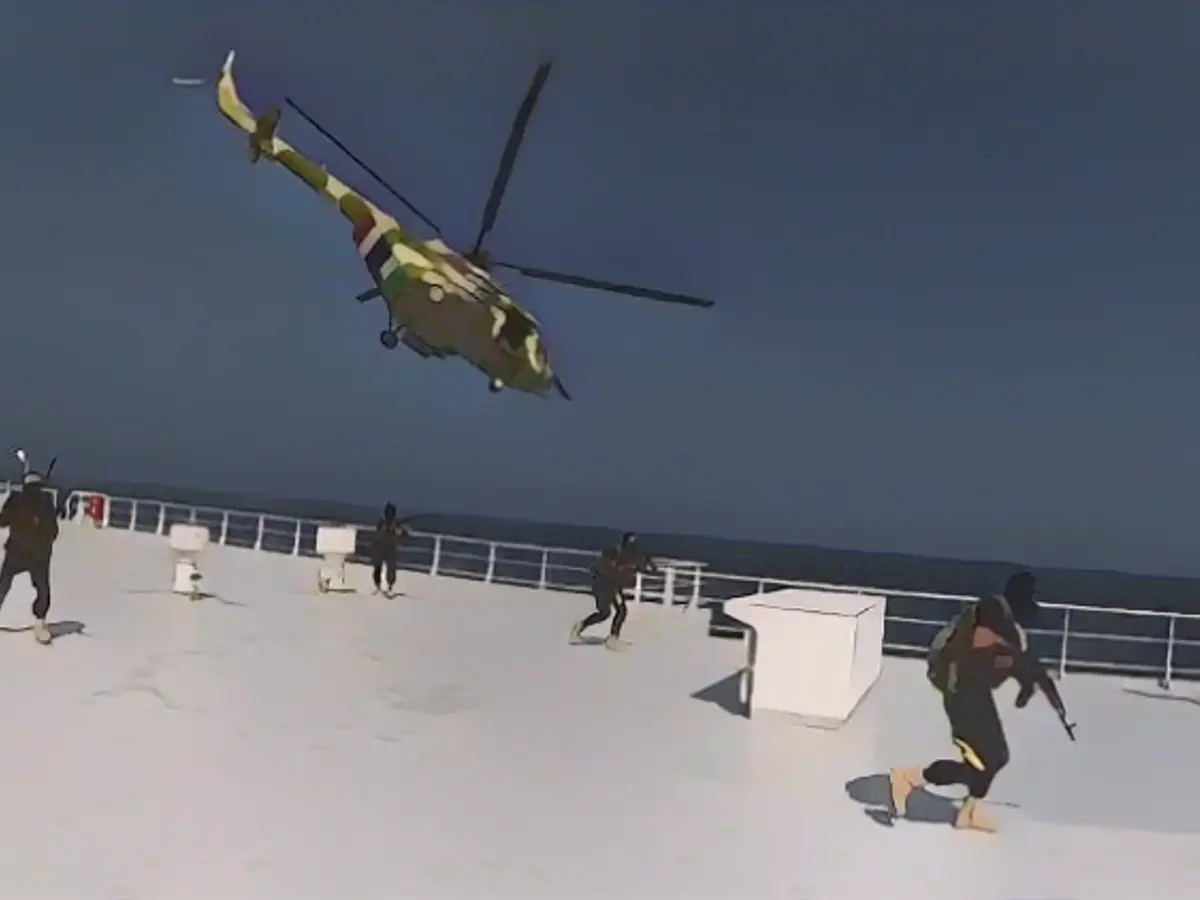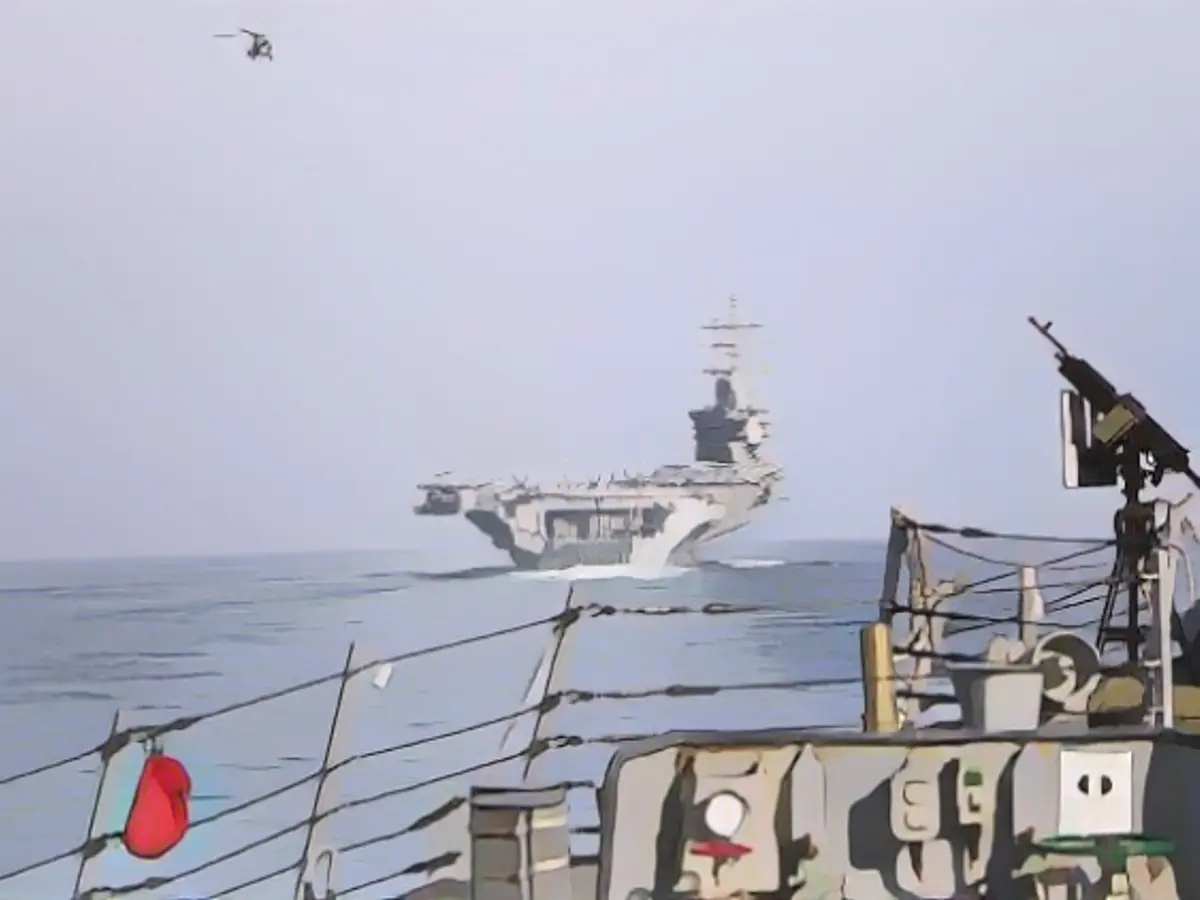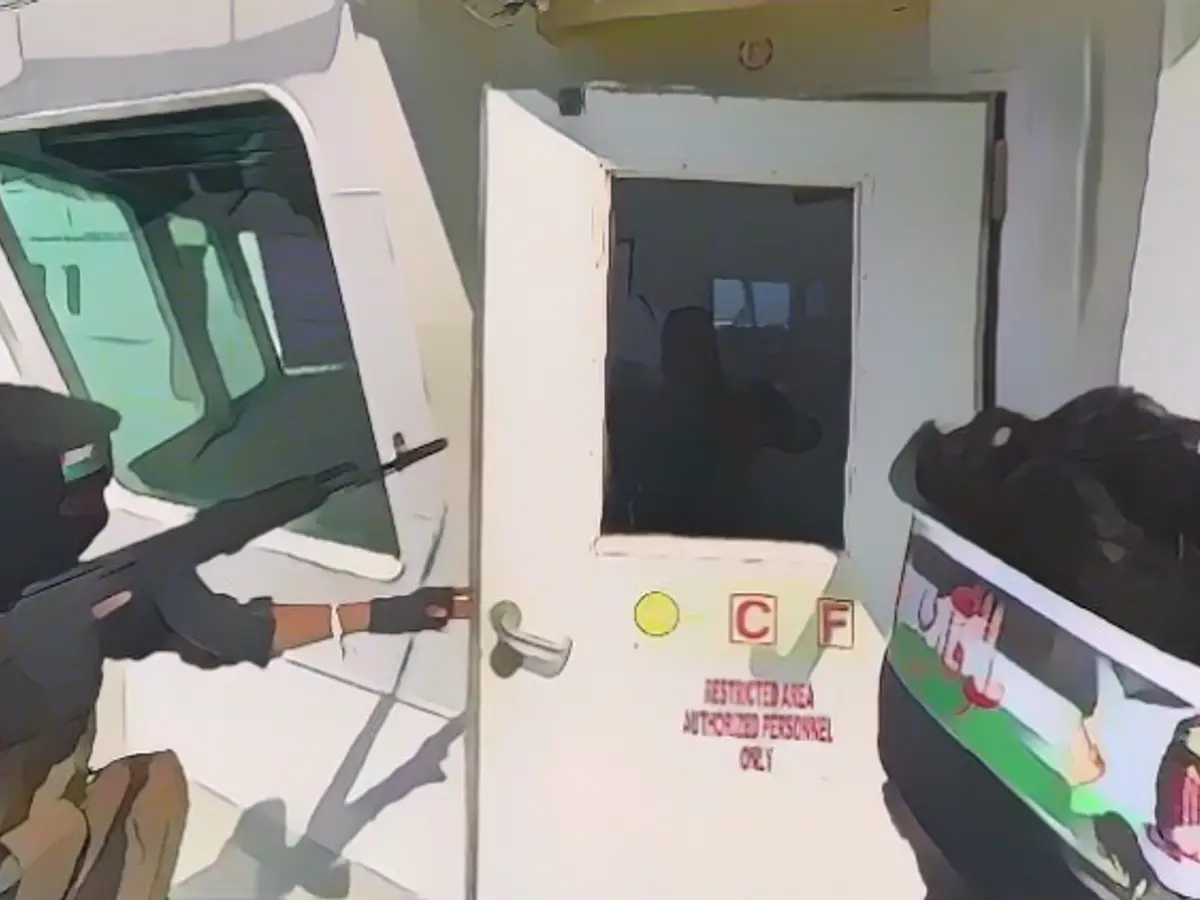Houthi Rebels Threaten to Persist with Ship Attacks
The Houthi rebellion, affiliated with Iran, has declared its intention to continue attacking ships in the Red Sea, disregarding the formation of a multinational military coalition led by the United States to safeguard maritime traffic. This coalition, christened "Operation Prosperity Guardian", gathers nine additional countries besides the U.S., including Germany, which is currently considering partaking in the mission.
High-ranking Houthi representative Mohammed al-Buchaiti asserted that their military operations would persist, no matter how far the U.S. manages to mobilize international support. Blatantly disregarding casualty costs, a Houthi spokesperson proclaimed that their intention was to protect Israel and "militarize" the sea.
Hostile intentions towards interference in the conflict are clear, with Buchaiti warning that anyone expanding the battlefield will bear the consequences. The coalition's primary objective, as announced by U.S. Defense Secretary Lloyd Austin, is to safeguard "freedom of navigation for all nations" while strengthening regional "security and prosperity."
Germany remains an outside observer in this conflict, currently assessing the possibility of joining the U.S.-led military protection of trade routes. Washington's request is under examination, but no clear decision has been made.
The U.S. condemned the Houthi attacks as unprecedented and unacceptable, posing a danger to free trade. On Monday, Austin declared that the Red Sea Protection Coalition was established to safeguard "freedom of navigation" and augment regional security and prosperity.
Since the beginning of the conflict between Israel and Hamas's radical Islamic organization, the Iran-backed Houthi militia in Yemen has targeted both Israel and ships in the Red Sea. Following repeated attacks, major shipping companies have suspended their voyages through the Bab-al-Mandeb Strait and Bab-el-Mandeb, including the British oil company BP and shipping giants Maersk and Hapag-Lloyd.
Despite the U.S. forming a military alliance to protect shipping in the Red Sea, the Houthi rebels remain determined to proceed with their attacks, even at the expense of their own casualties. This escalation prompted Germany to consider joining the American military alliance, with broader implications for regional security, NATO's role, and Germany's defense policies.
Enrichment Data:
The Houthi insurgency's persistence in attacking ships in the Red Sea is motivated by a mix of factors:
- Iranian Support: As an Iran-backed group, the Houthis aim to carry out attacks to exert pressure on Israel and halt its activities in Gaza.
- Limitations in Distinguishing Targets: The Houthis have demonstrated an inability to accurately distinguish between their targets, frequently attacking vessels without direct connections to Israel.
- Military Determination: Unfazed by military responses from the coalition, the Houthi leadership has shown a strong willingness to retaliate. Vice-President Abdul-Malik al-Houthi threatened to resume military activities if the Gaza truce falters or if U.S. and British militaries strike Houthi-held territories.
Germany's possible involvement in the U.S.-led coalition to safeguard shipping in the Red Sea is not determined solely by the Houthis' actions, as regional dynamics involving Iran, Israel, and the Middle East are of greater concern. Nevertheless, the broader implications of this escalating conflict, touching on defense strategies and NATO's role in global security, are being discussed in the context of German defense policies.
Recent developments have sparked debates within Germany, particularly from the Alternative for Germany (AfD) party, advocating for a revival of military conscription to strengthen German defense capabilities and achieve greater independence from alliance partners. Meanwhile, the AfD supports NATO membership, emphasizing the need for the alliance to uphold its defensive role instead of serving as a global aggressor.
With the Houthi insurgency ignoring the U.S.-led coalition's efforts to safeguard shipping in the Red Sea, and the ongoing risks to global trade, Germany's possible participation in the alliance continues to be a critical discussion point within European defense policies.







